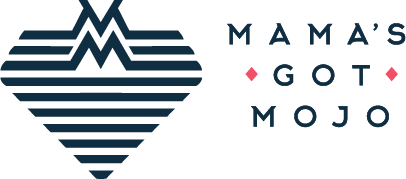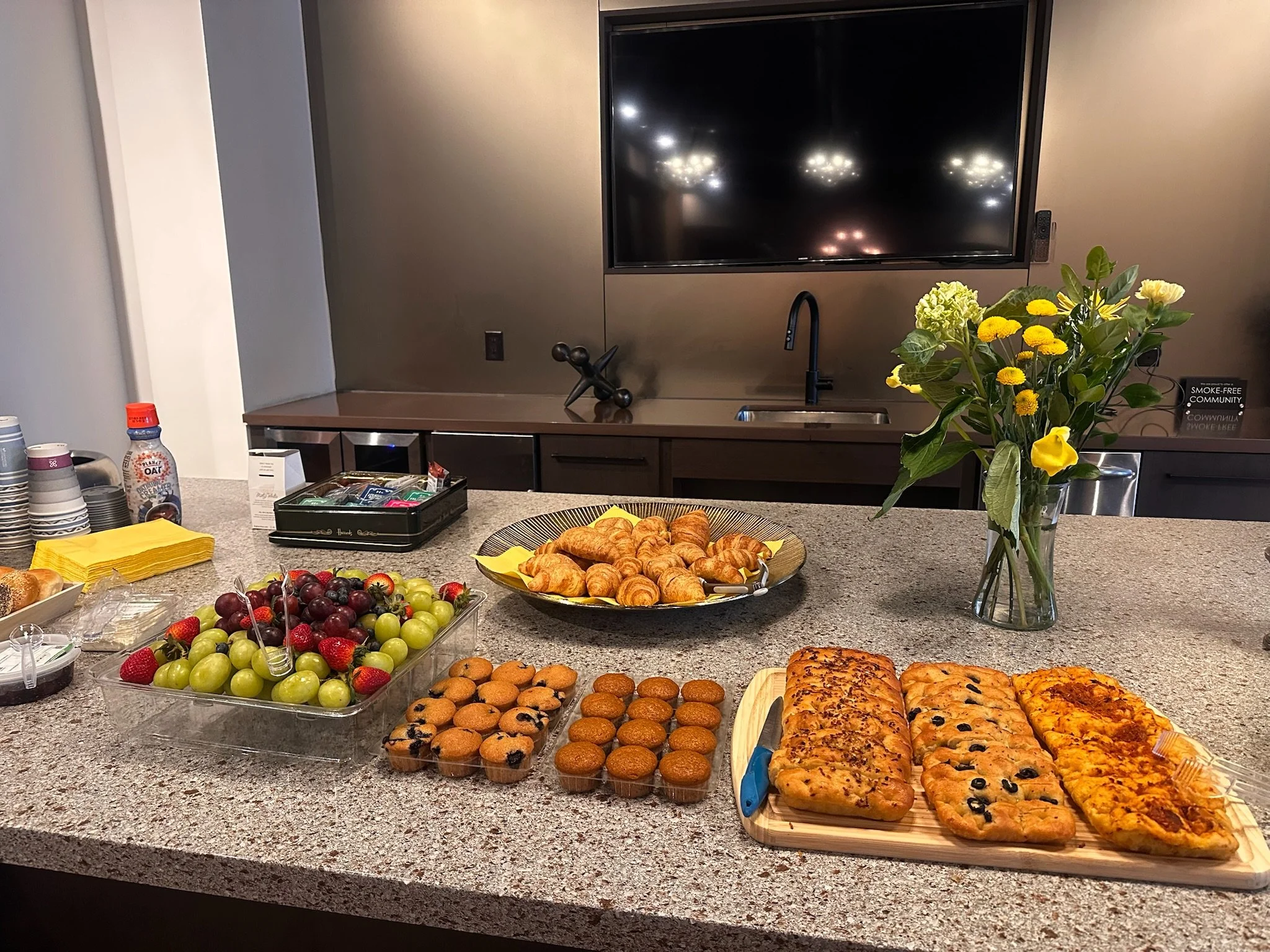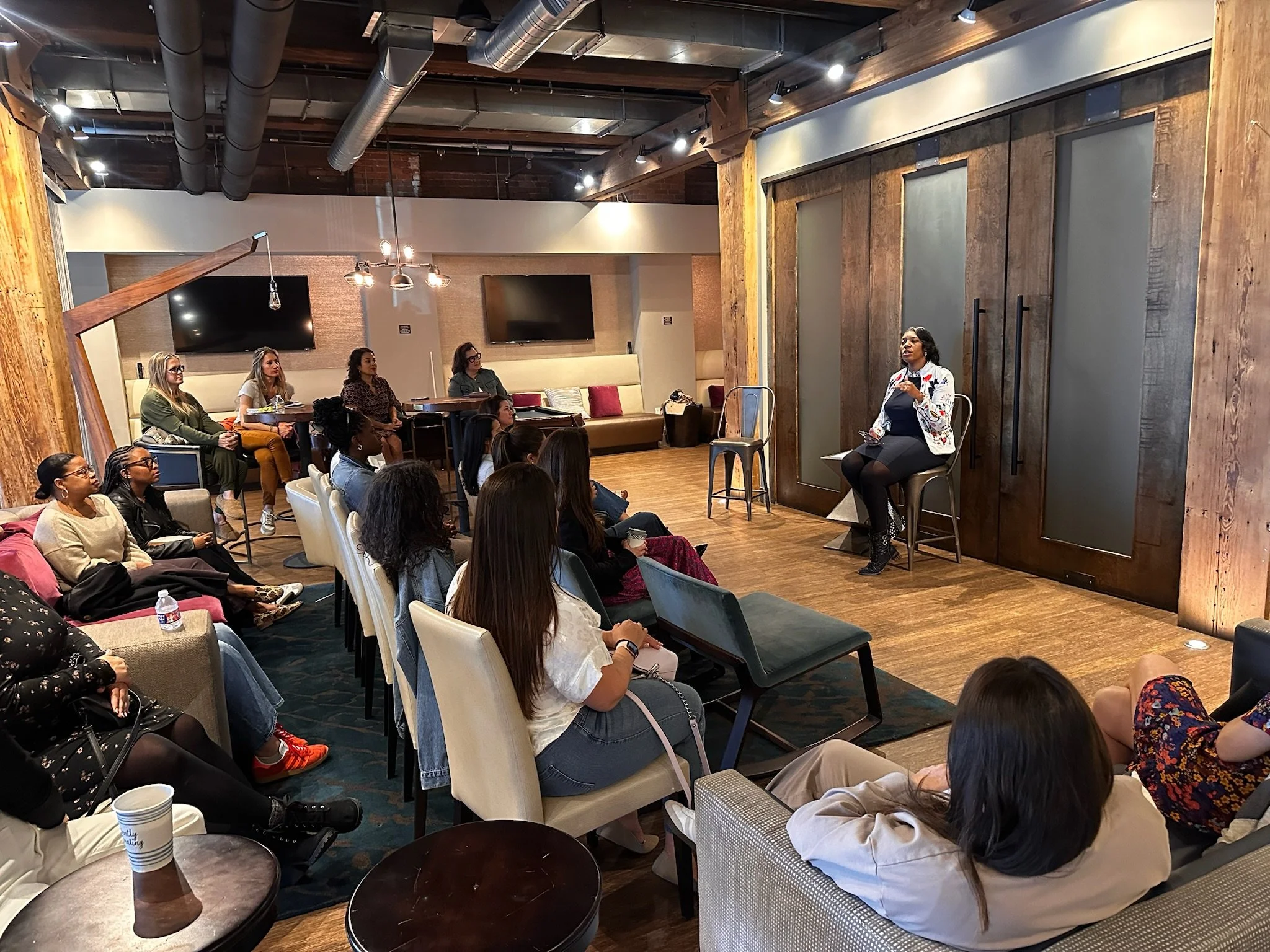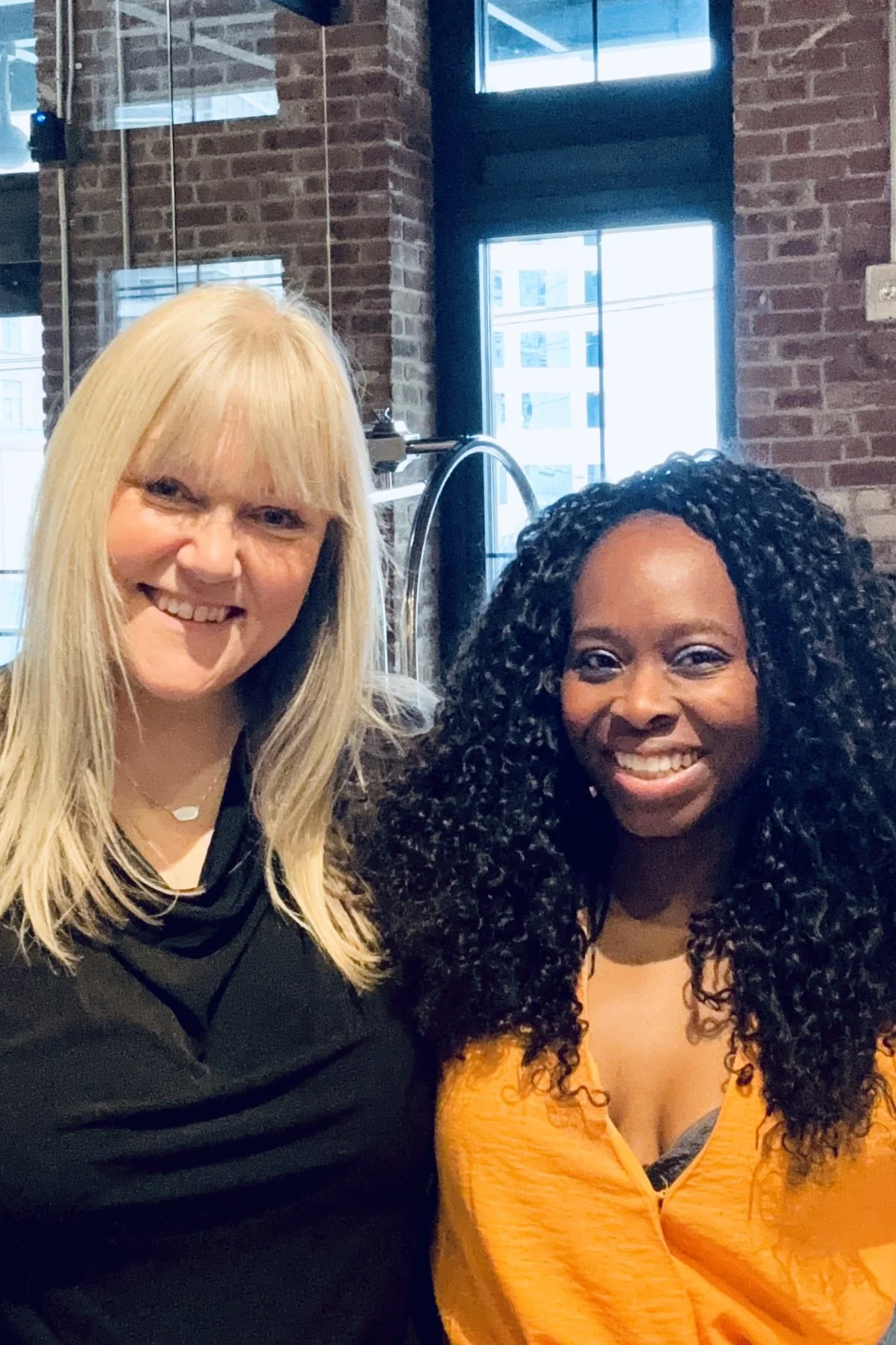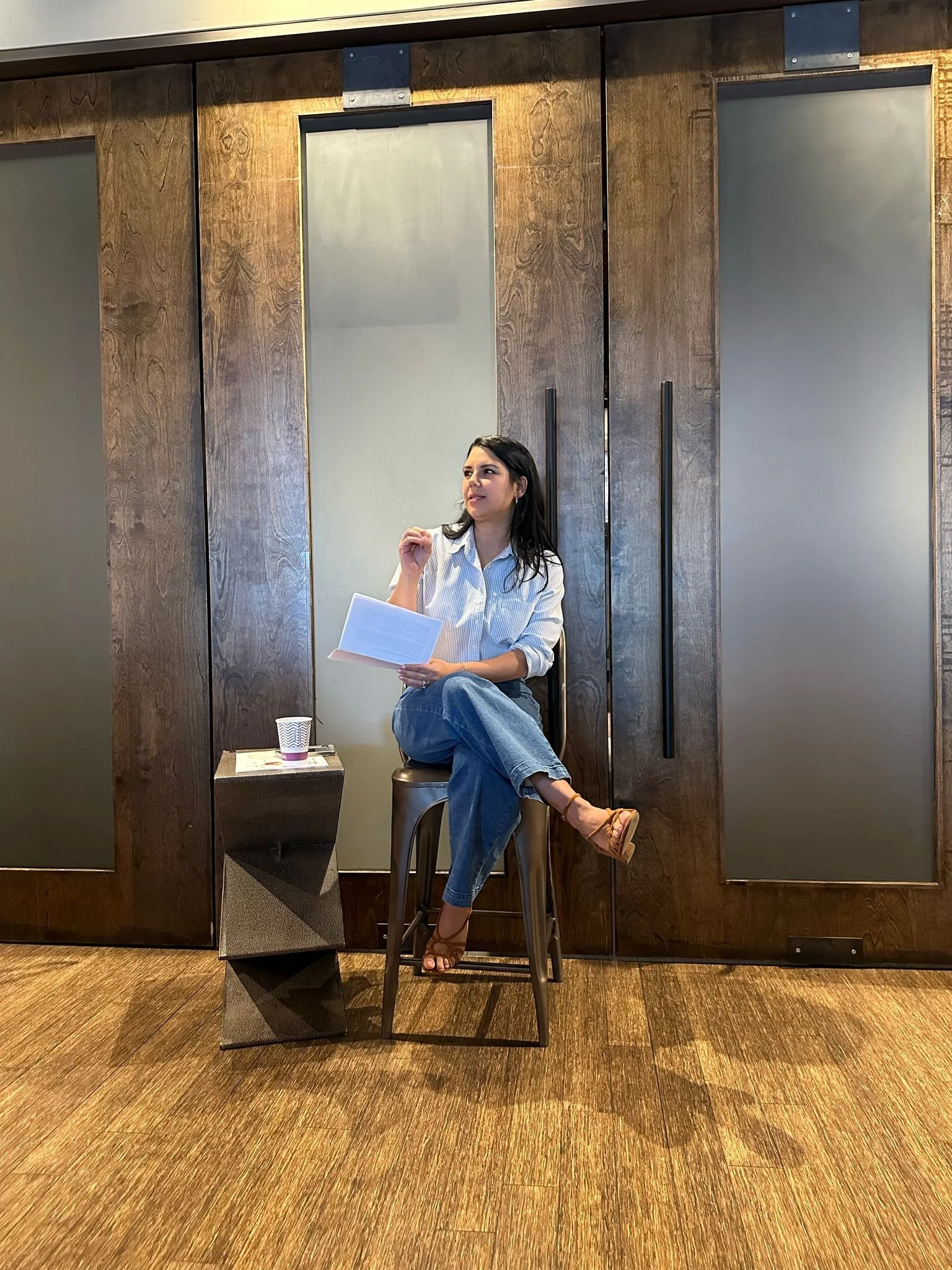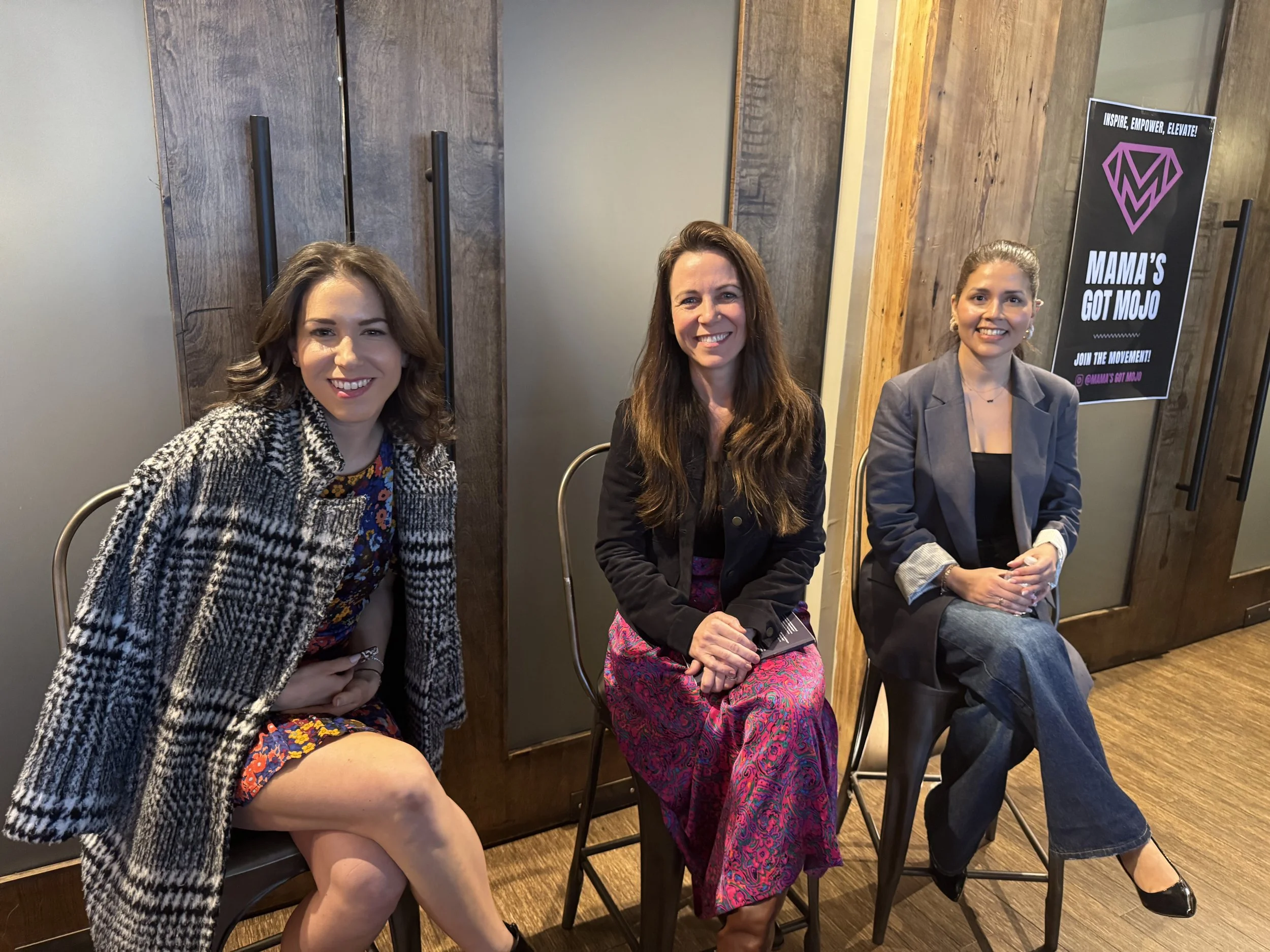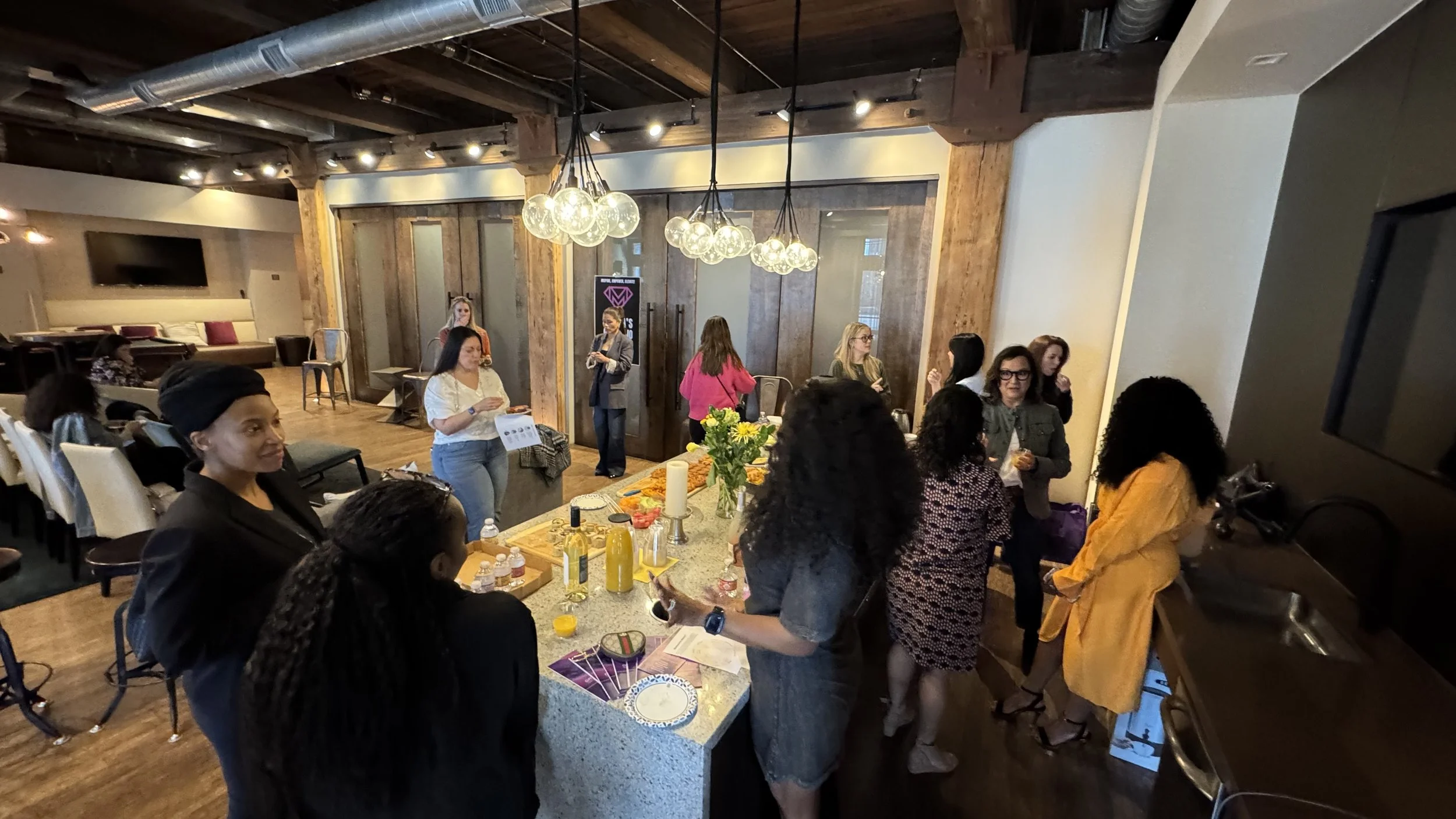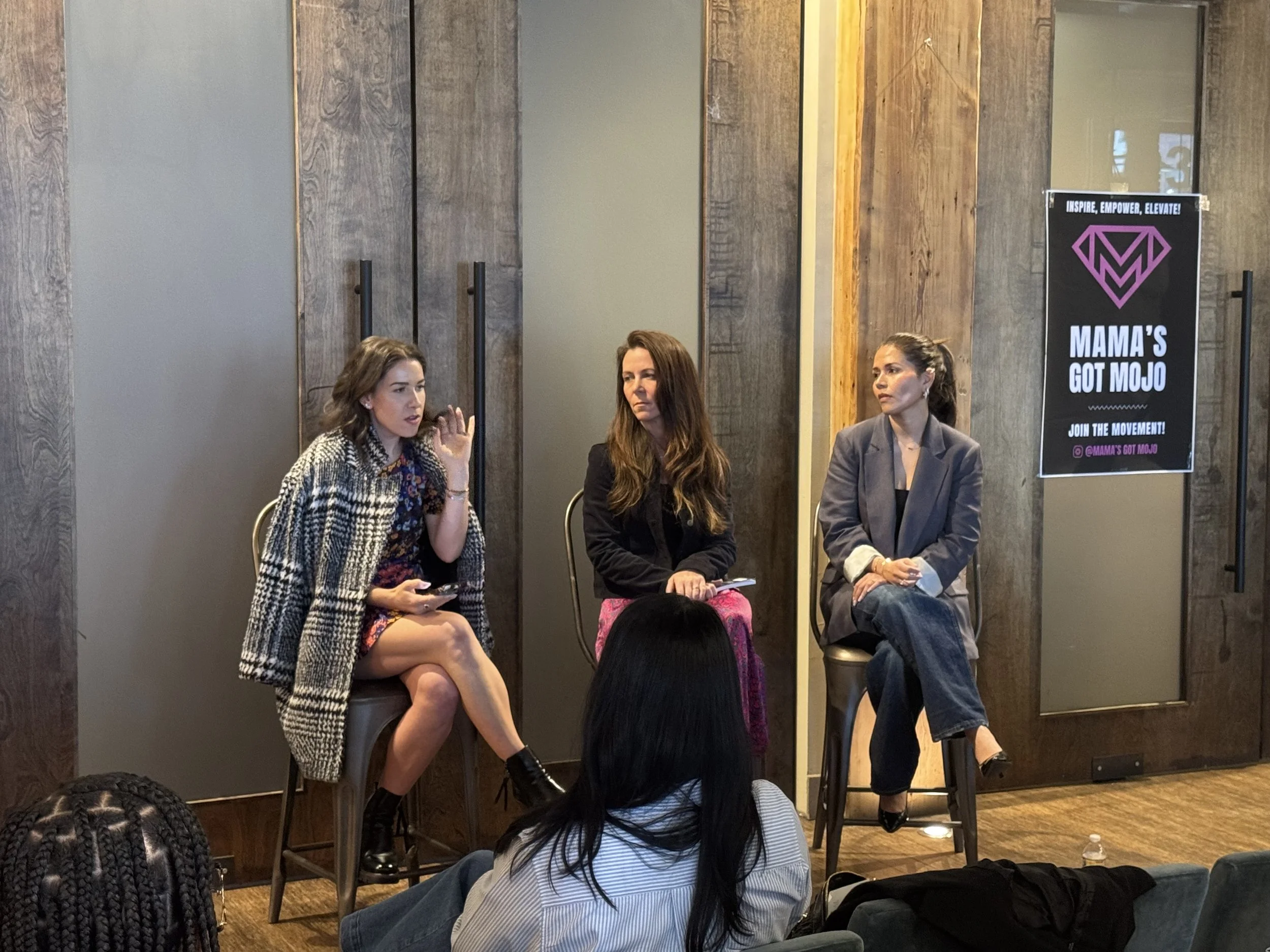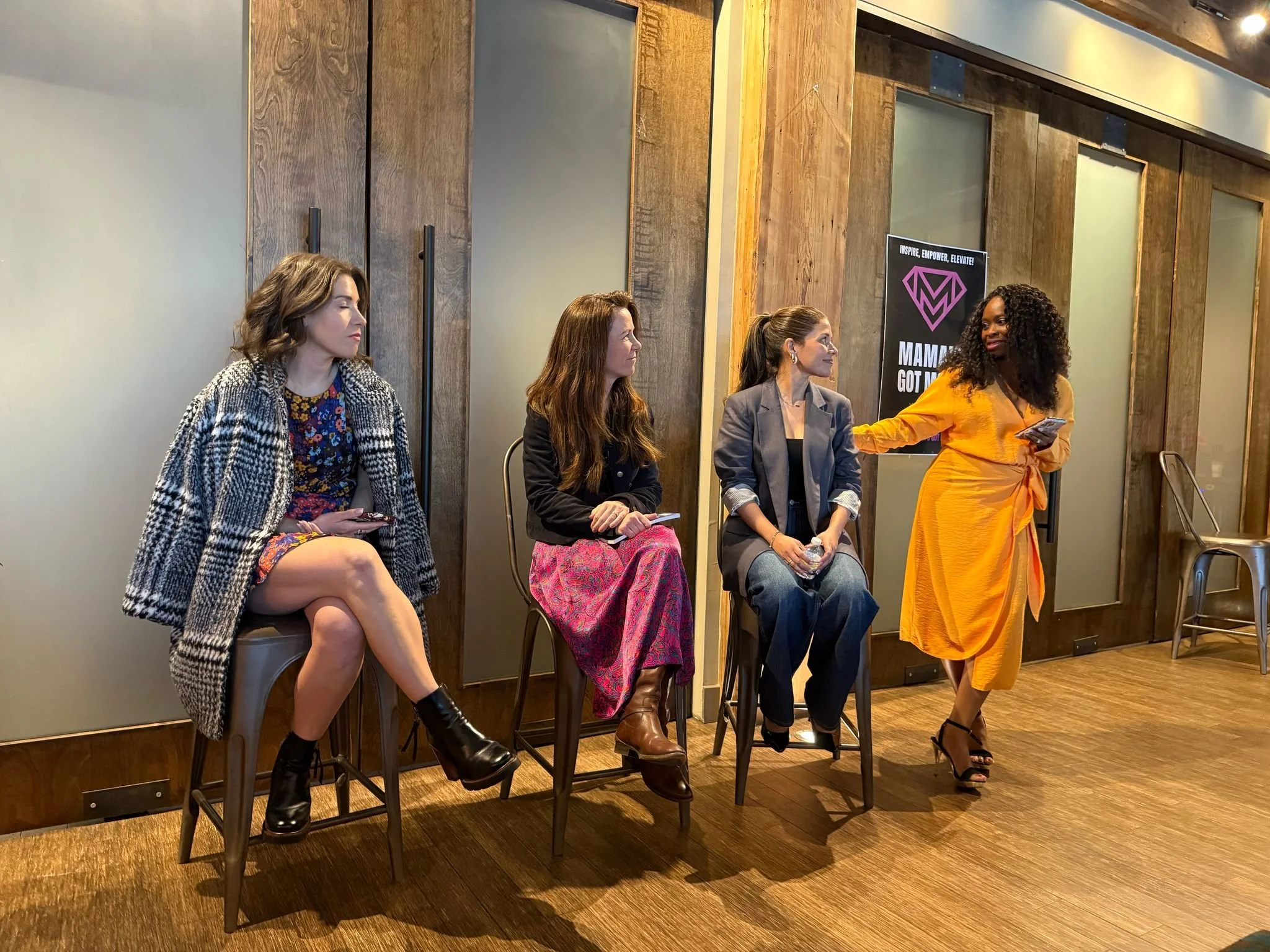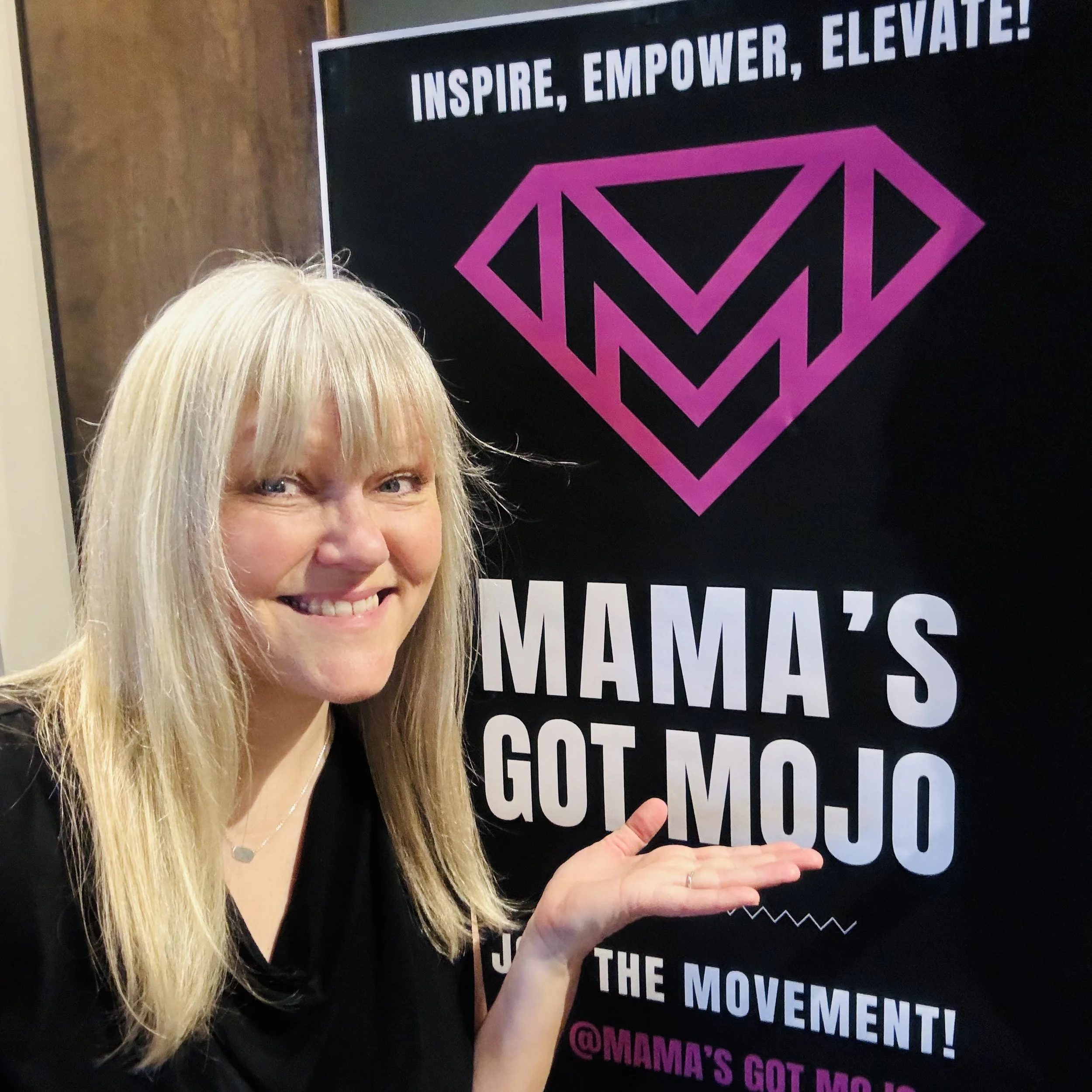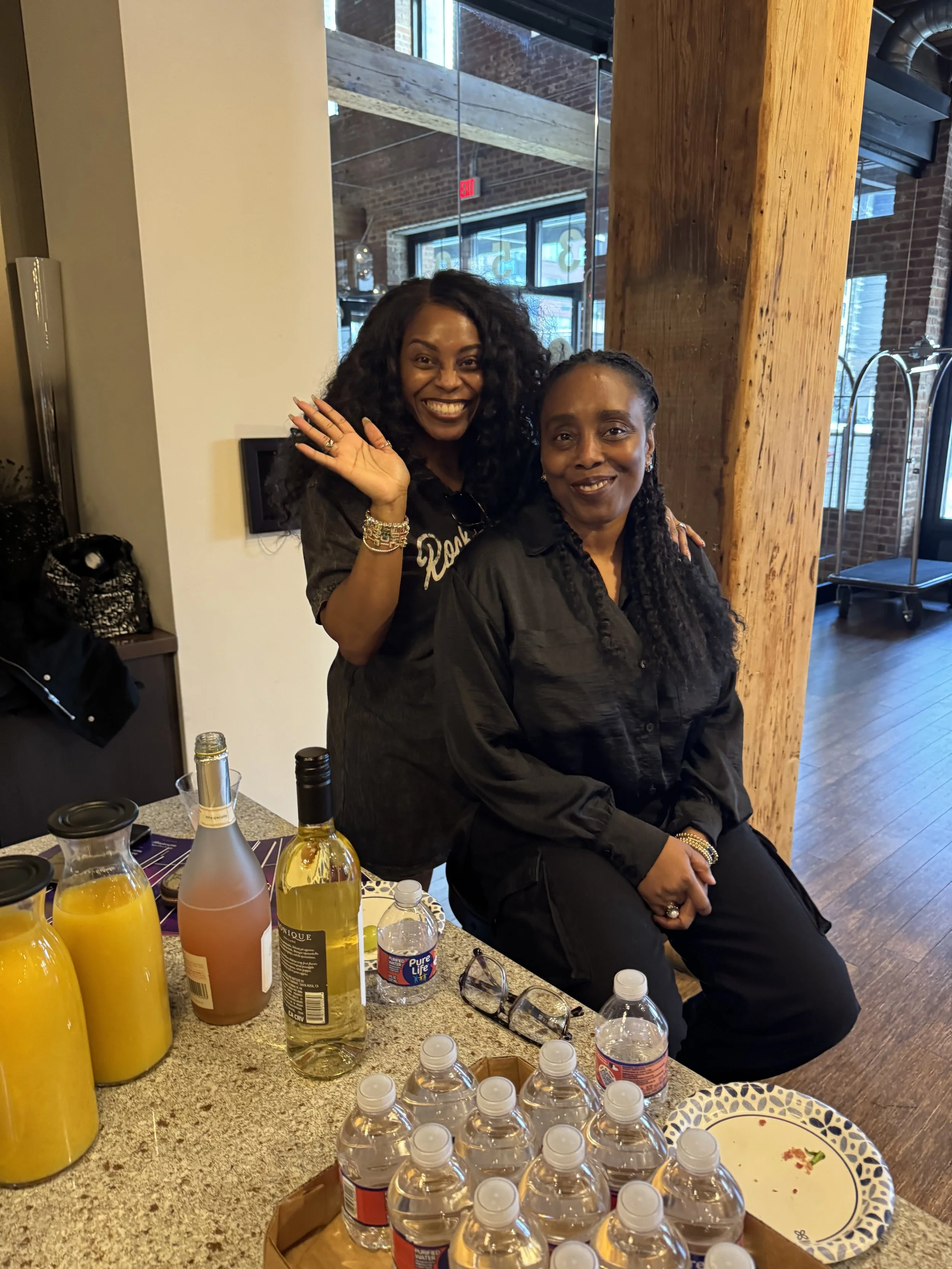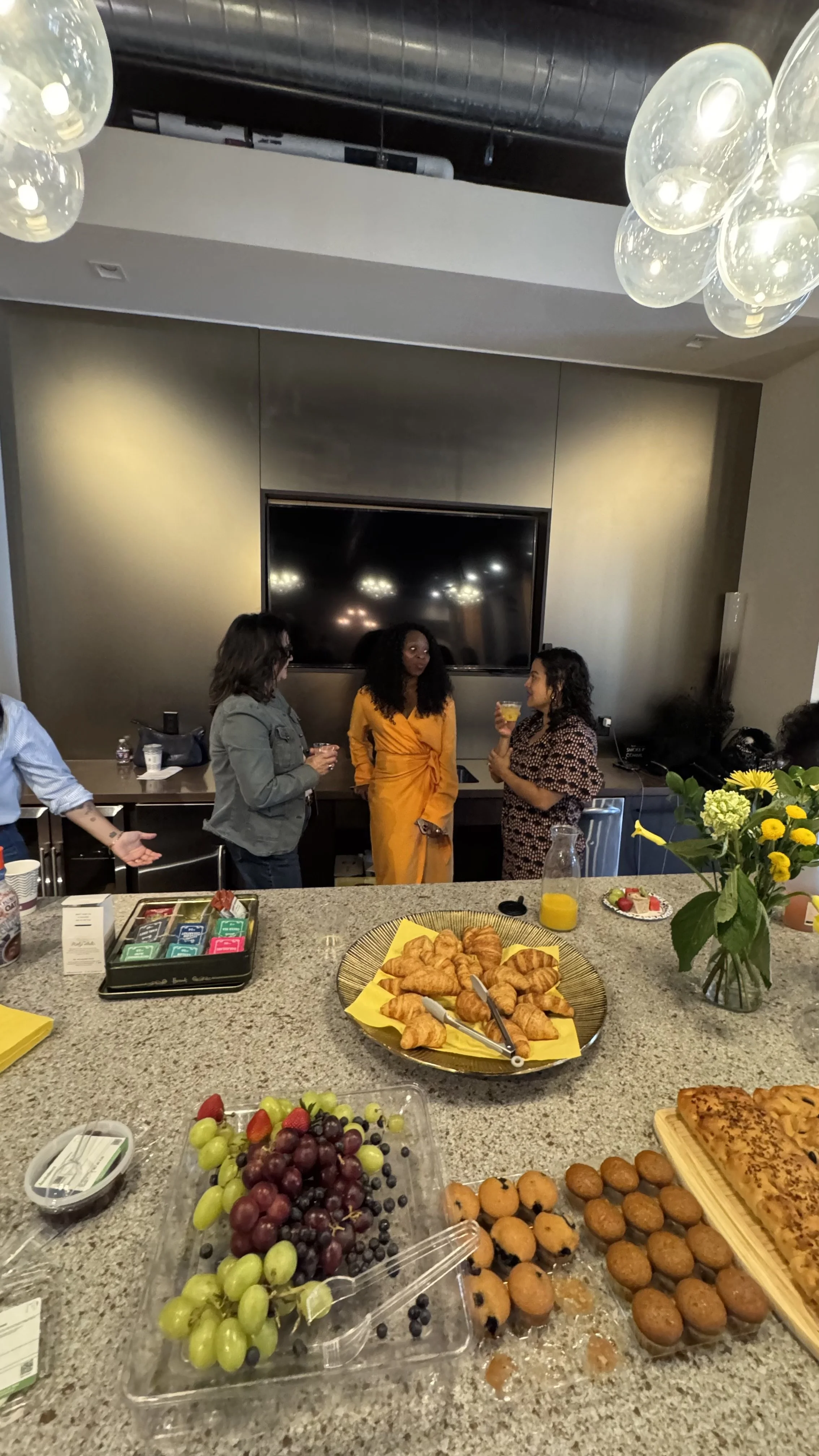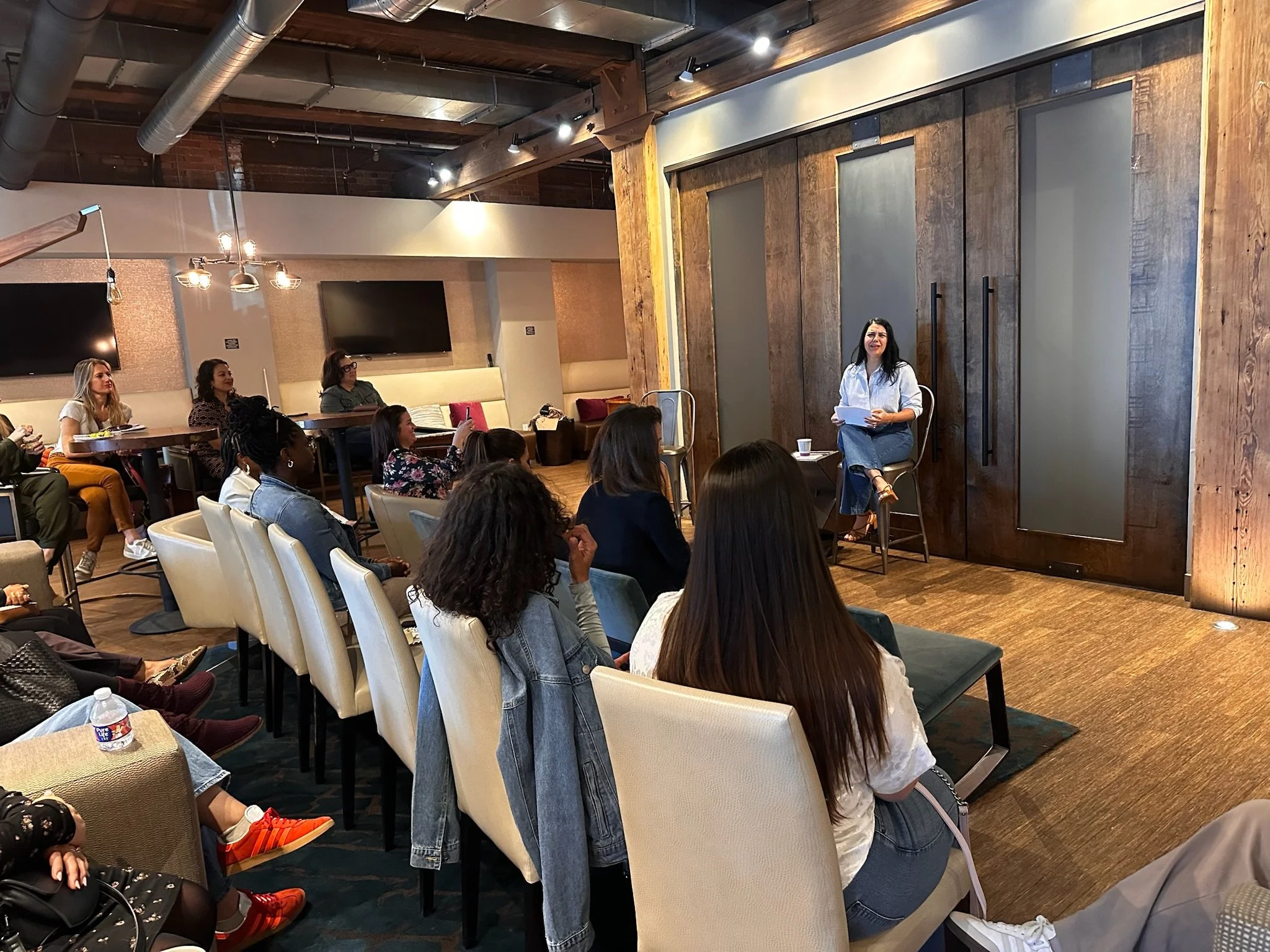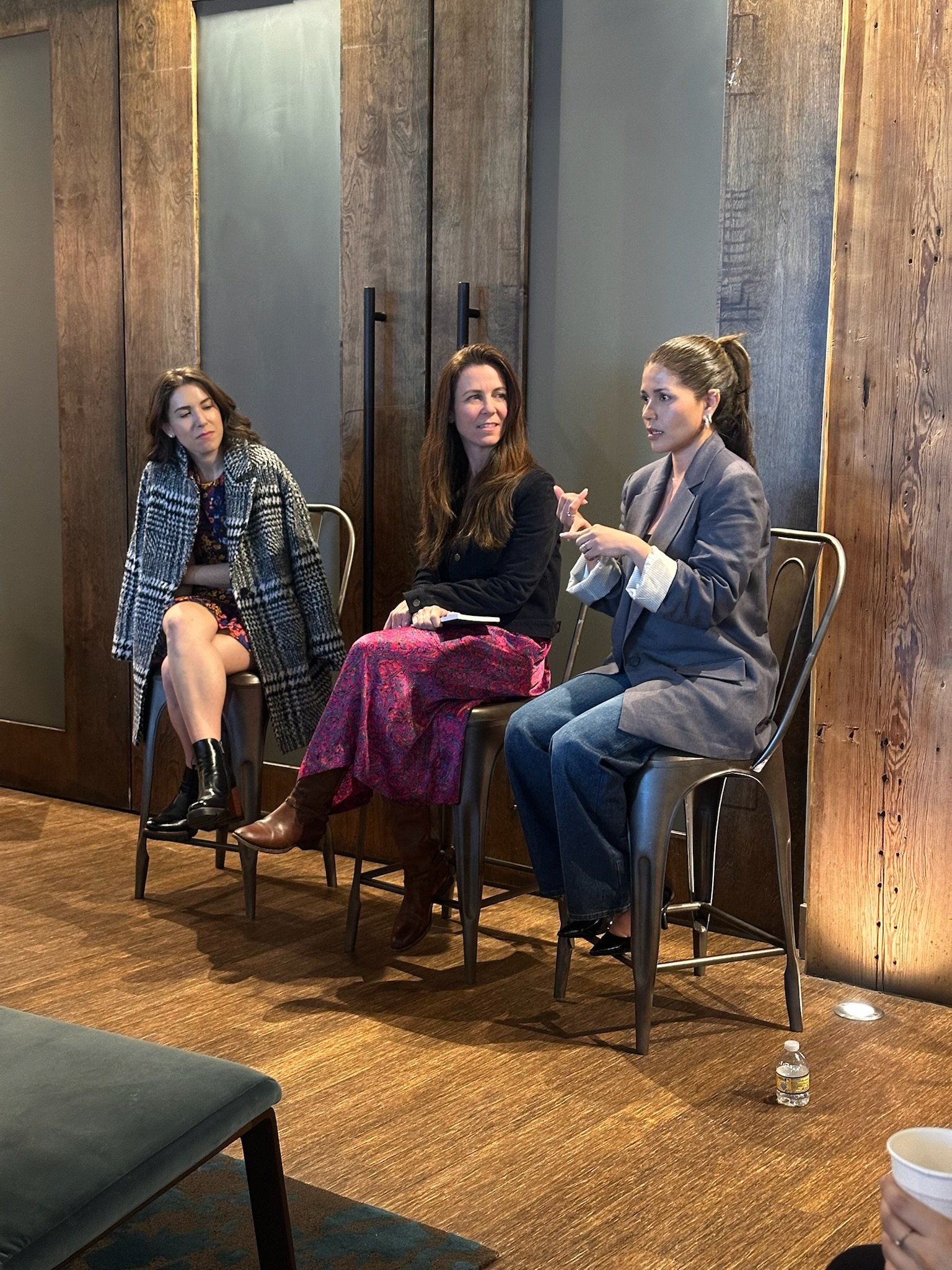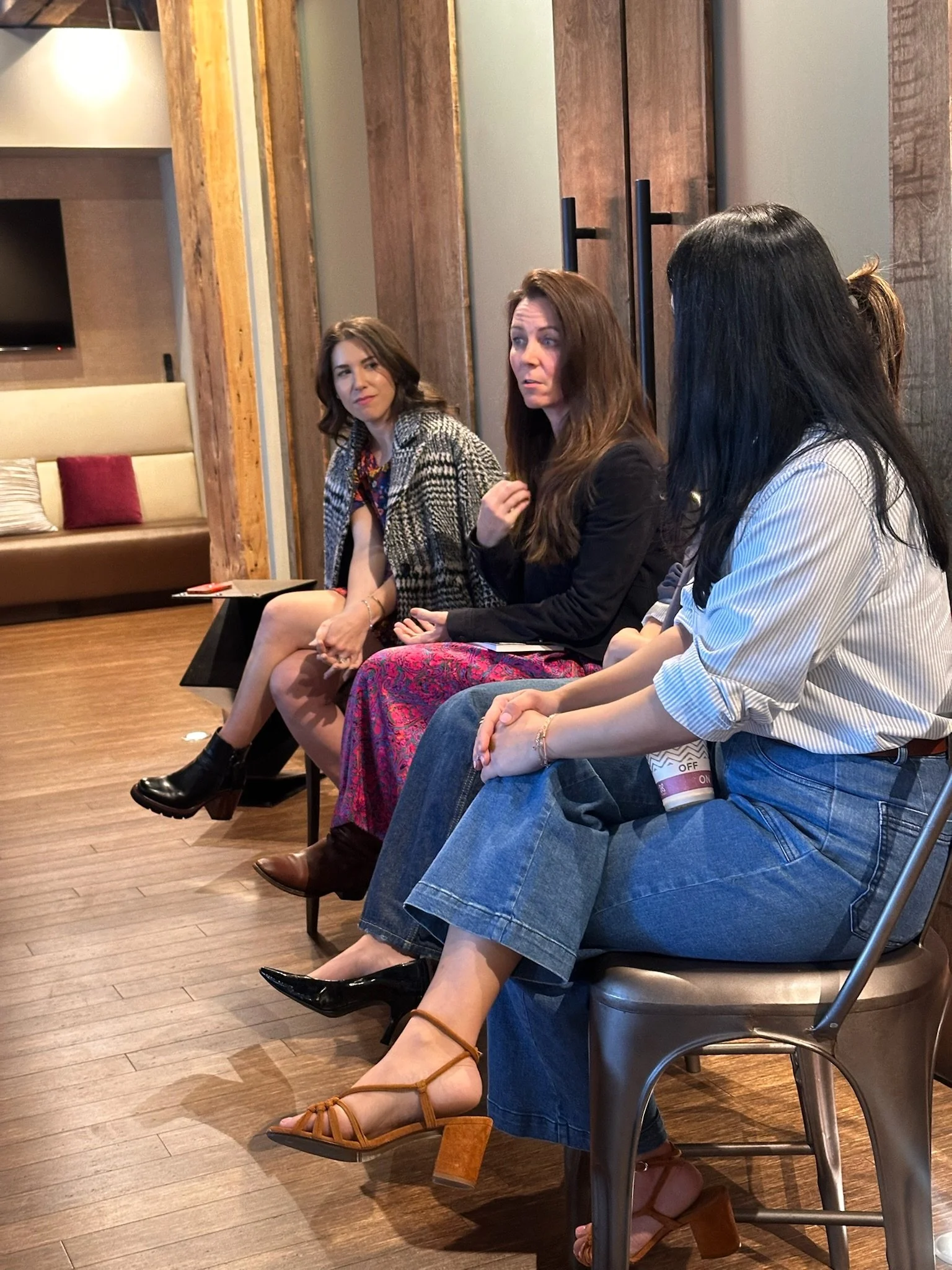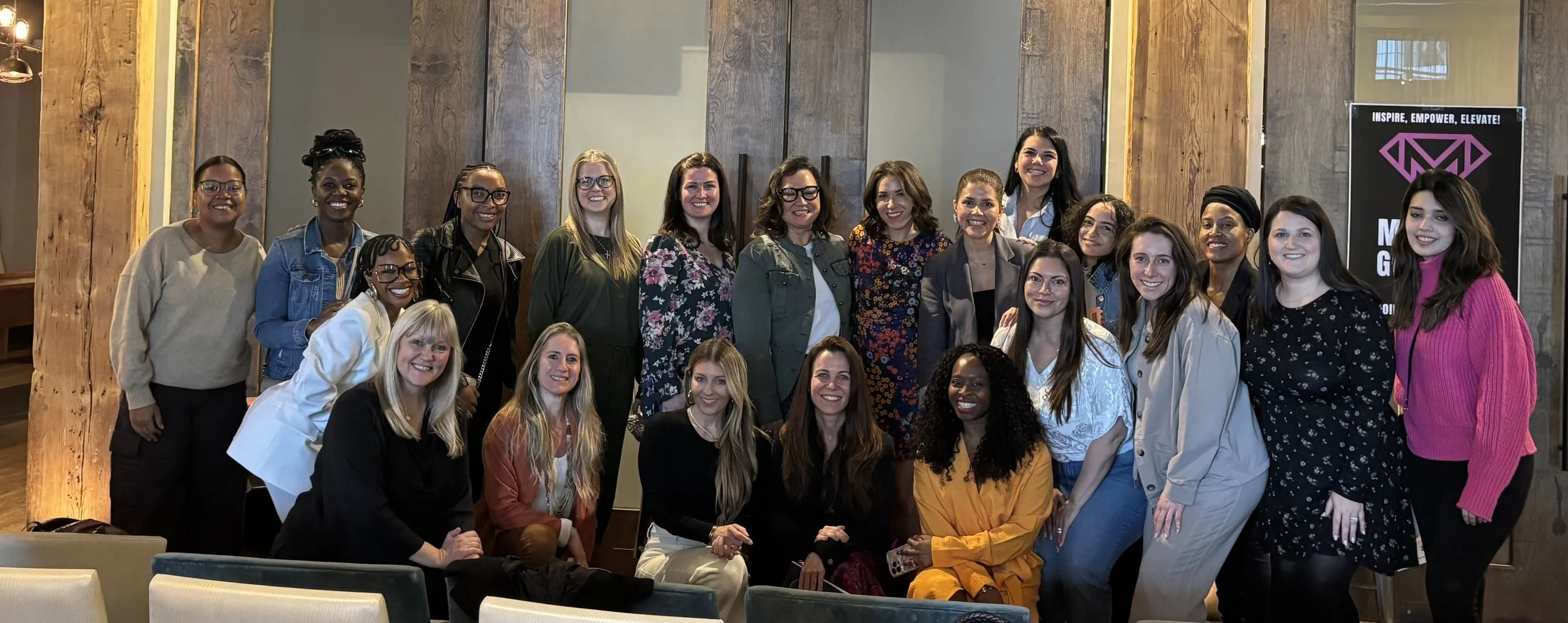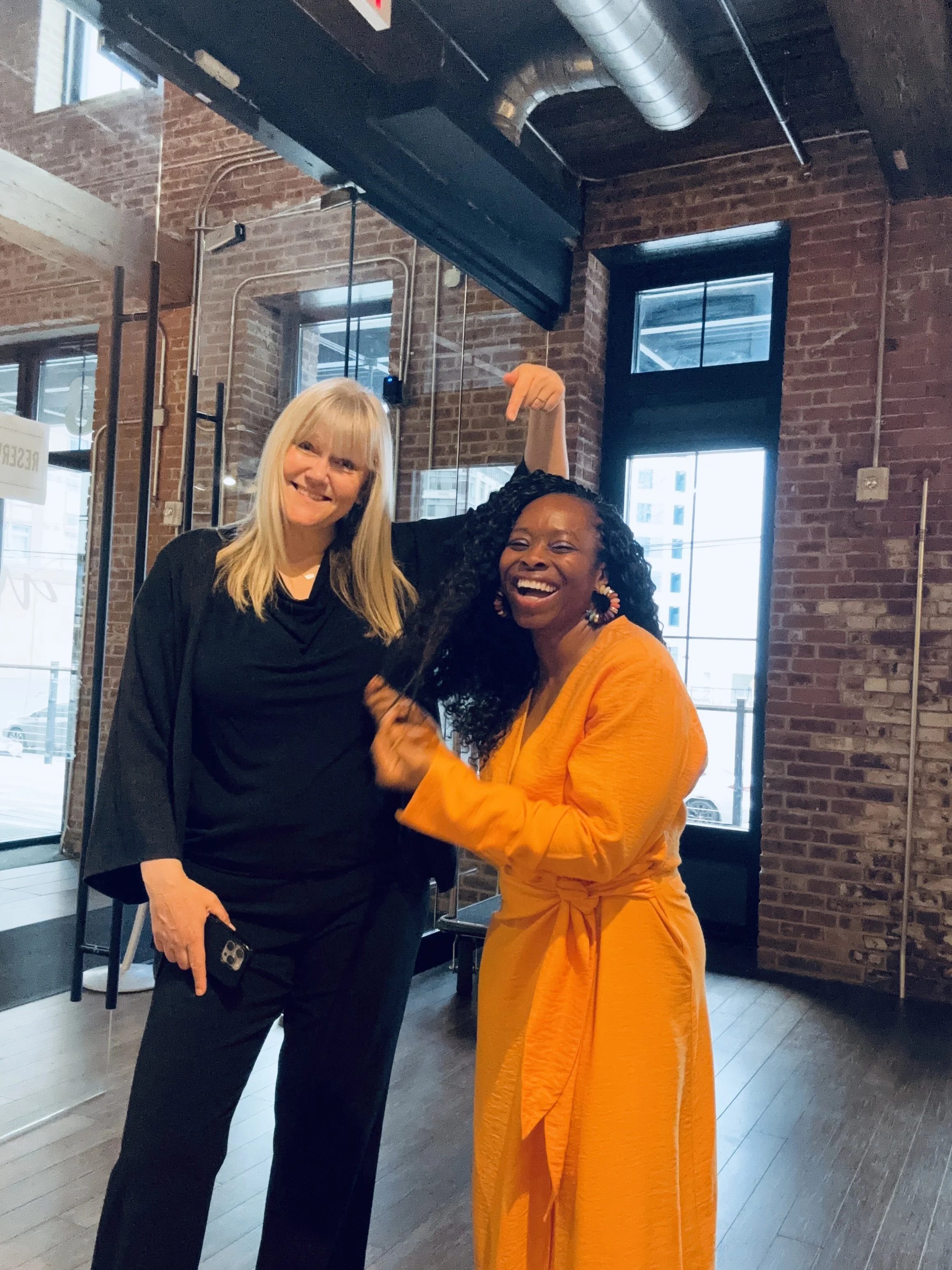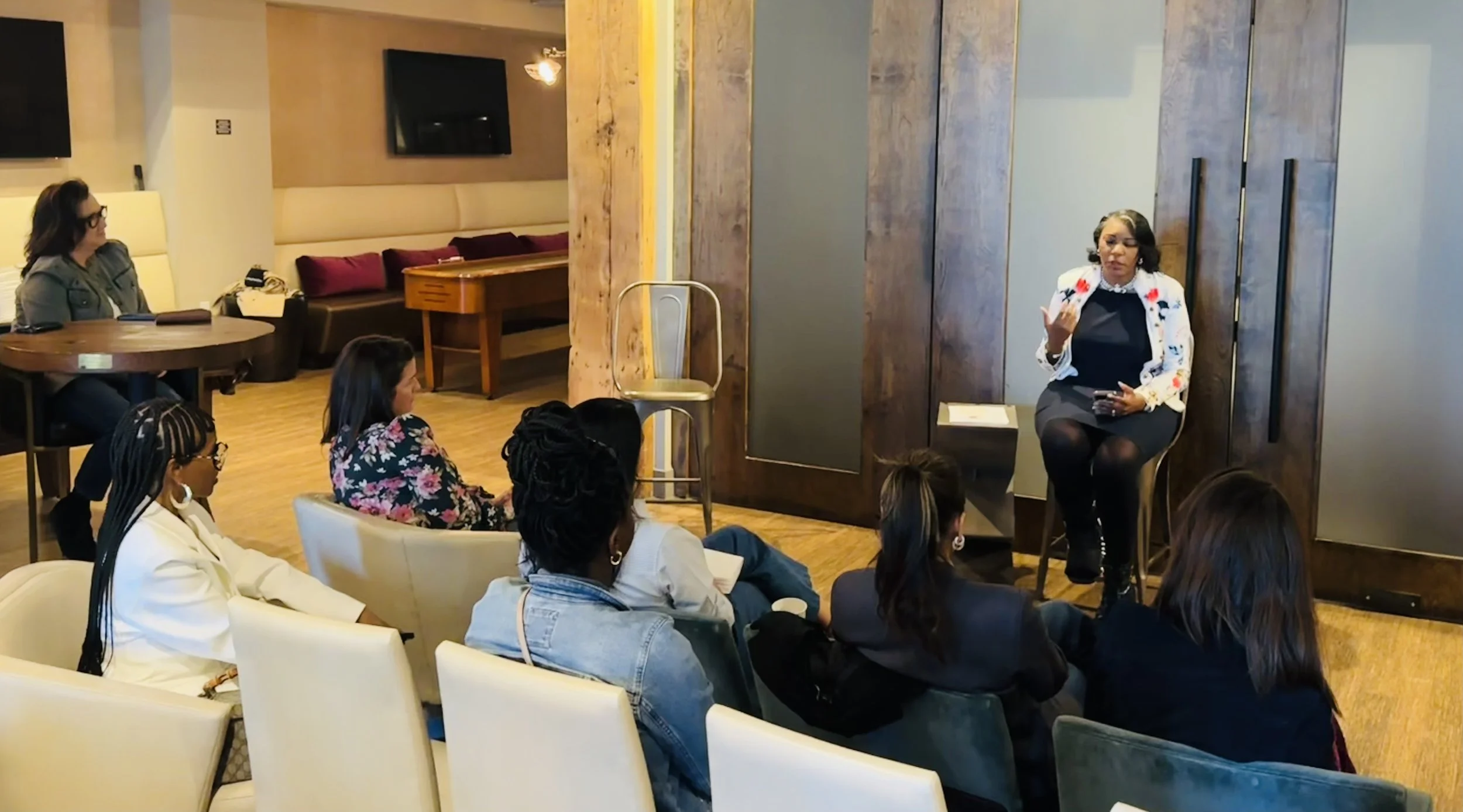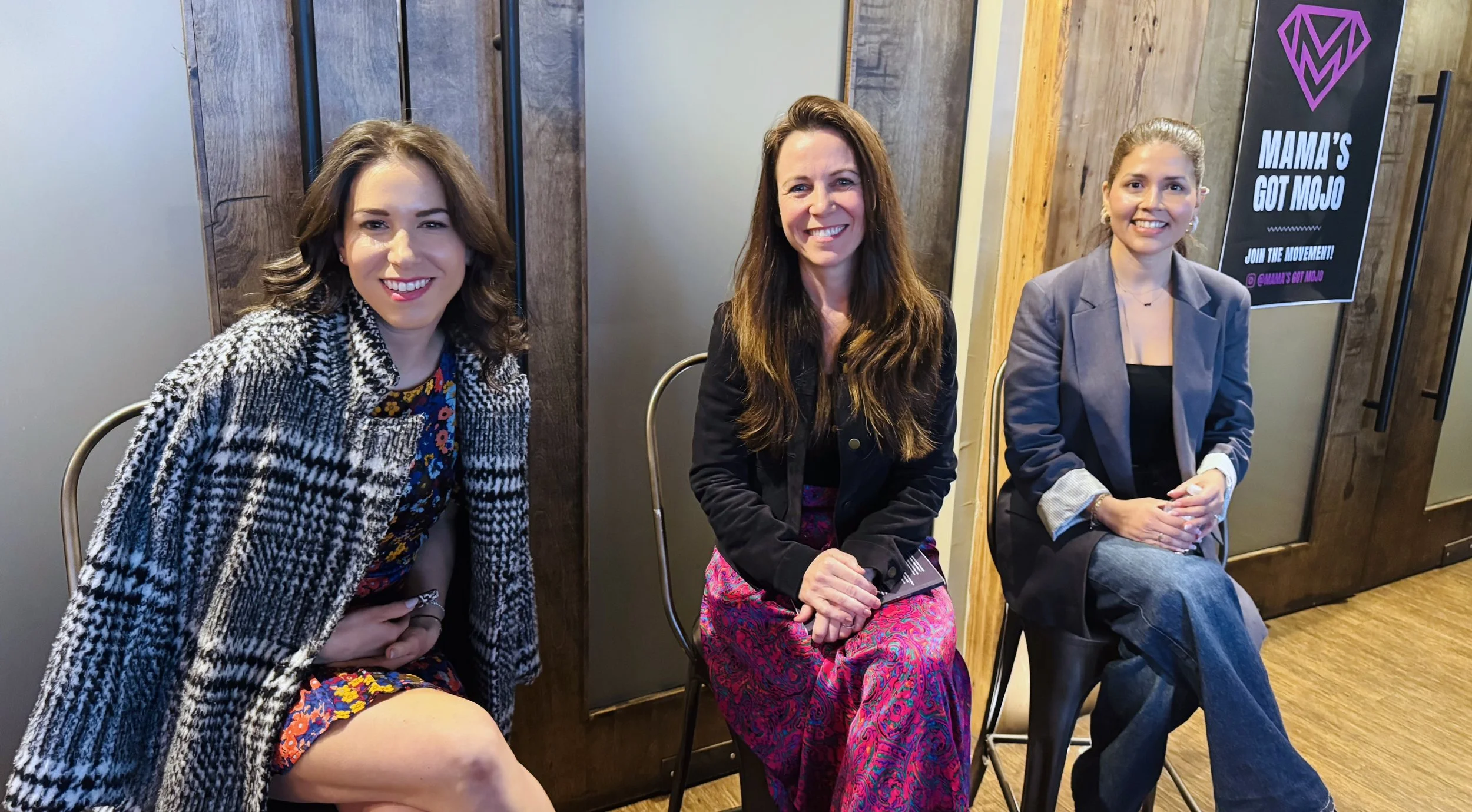Inside The Motherhood Shift: Unpacking Matrescence, Reclaiming Identity, & Igniting Your Power
On March 29th, Mama’s Got Mojo and Jersey City Moms, co-hosted The Motherhood Shift—an event that explored the complex, identity-shaping experience of motherhood, also known as matrescence. From deeply personal stories to science-backed insights, research, and practical strategies, our speakers offered real tools and knowledge for navigating the mental, emotional, and physical shifts of becoming—and being—a mother.
Whether you were there in person or couldn’t attend, this recap highlights the key takeaways and powerful moments shared by our expert lineup: Reverend Tami Weaver-Henry, Andrea Bombino, Dr. Adrian Oxman, Kelly Van Zandt, and Doucky Esquijarosa.
Opening Words from Reverend Tami Weaver-Henry
“It’s OK to not always be OK. It’s OK to ask for help. It’s OK to say no. And it’s OK to say, I want some me time.”
Reverend Tami Weaver-Henry opened The Motherhood Shift with a powerful reminder of why we were there—to honor the full experience of motherhood in all its beauty, complexity, and challenge. A mother of seven, grandmother, CEO, Reverend, and Chair of Jersey City’s Women’s Advisory Board, she brought the room to stillness and fire all at once.
She didn’t speak from theory—she spoke from survival.
At just 16, Tami became the primary caregiver for her terminally ill mother. At 19, she raised her brother. She’s felt the full weight of motherhood, including the unimaginable loss of her daughter to gun violence. And still, she rises—leading with purpose, conviction, and deep compassion.
“Motherhood is not just personal—it’s political, spiritual, and deeply social.”
Tami reminded us that the myth of “doing it all” is dangerous and outdated. We are not meant to carry the weight alone. Her voice was a powerful reminder that healing and hope can—and must—coexist.
As Chair of Jersey City’s Women’s Advisory Board, Tami isn’t just talking about change—she’s writing it into policy. From eliminating discrimination against women, to expanding maternal care and fighting for postpartum and autism resources, she’s doing the work, in real time, for real people.
“You always have a seat at the table,” Tami said. “Because that’s where you belong.”
Her message to us was clear: Speak up. Be honest. Ask for what you need. And never forget your worth.
This wasn’t just a welcome—it was a wake-up call. And we heard it loud and clear.
Keynote: Andrea Bombino on Understanding the Motherhood Shift
Andrea Bombino
Andrea Bombino, Certified Matrescence Educator and founder of Andrea Bombino Coaching & Consulting, delivered a keynote with a rare blend of research, storytelling, and heart. She gave language to the identity shift of motherhood in ways that made everyone in the room nod with recognition and laugh with release.
Andrea opened by naming a dichotomy so many moms carry: that moment when you become a mother and simultaneously feel like you can do anything—and nothing.. Society’s message is clear: motherhood is sacred… but only if you do it quietly, perfectly, and without complaint.
She unpacked the harmful cultural myth of the “perfect mother”—the image we’ve absorbed from movies, novels, and media: a woman who is thin, white, fit, put-together, with a tidy home, polite kids, and the magical ability to balance it all with a smile. This impossible standard breeds guilt, shame, and deep mental health struggles. It’s a fantasy that excludes most moms—and still manages to make us feel like we’re failing.
Andrea also touched on the loneliness of motherhood, and how isolation can deepen when we feel like we’re the only ones not living up to the “perfect mother” myth. That’s why, she stressed, finding an authentic community of moms—spaces where we can be honest, messy, real—is not a luxury, but a necessity.
The common phrase: “I’m just a mom” reflect a society that has undervalued mothering for far too long. The truth is Mothering is one of the most important, skilled, and impactful roles in the world. It requires and builds capabilities—emotional intelligence, time management, problem-solving, conflict resolution, multitasking, and leadership—that are necessary at home but equally valuable in the workplace. By downplaying our role, we internalize the very messages that keep moms invisible and undervalued.
To help us visualize this dynamic, Andrea explained the Fishtank Model of Motherhood©. In this metaphor, created by Dr. Sophie Brock, mothers are the fish in the tank. We have been socialized to do our mothering (“The Swimming”) within the context of “The Tank,” which is our society. This model illustrates that we “perform” our roles as mothers based on societal expectations, i.e. the things we “should” do to be a “good mom.”
When we choose to go against these societal norms ( not being self-sacrificing all of the time, or putting our needs first), we’re putting cracks in the tank. These “cracks” appear when we resist patriarchal expectations and push for change: like advocating for paid parental leave, or demanding access to affordable childcare. Recognizing the tank helps us understand our struggles aren’t personal failures—they’re shaped by the system—and it opens the door for collective support and change.
Andrea spoke of motherhood as a catalyst for transformation. Mothers are raising the next generation and reshaping what it means to nurture, lead, and show up in the world. But, she emphasized, it should not fall solely on moms to rewrite the rules. It’s time for society to support and reflect the complexity of real motherhood. “Being a mother today,” Andrea said, “is an act of rebellion.”
She then introduced Nikki McMahon’s “Matrescence Matrix,” which outlines how motherhood transforms us across eight core areas:
Physical
Cultural
Relationships
Psychological
Career
Economical
Spiritual/ existential
Political
These shifts, often invisible or dismissed, are monumental and deserve recognition.
She followed up with McMahon’s concept of the Seasons of Matrescence. Much like nature, mothers cycle through internal seasons.
In our winters and autumns, we may feel low, depleted, or even depressed—struggling to find motivation or clarity. These are not signs of weakness, but seasons of rest and reflection.
Then come our springs and summers—periods of energy, creativity, confidence, and possibility.
Andrea’s message was clear: All seasons are valid. All seasons are necessary. The power lies in recognizing the season you're in—and giving yourself permission to move with it, not against it.
Her keynote was a profound reminder that we are not broken—we are becoming. And when we stop trying to fit into someone else’s story of motherhood, we start writing our own.
Panel Recap: The Hidden Realities and Transformations of Motherhood
At our panel discussion, three powerful voices—Dr. Adrian Oxman, Kelly Van Zandt, and Doucky Delisma—helped pull back the curtain on the deeply layered experience of motherhood, each bringing personal wisdom, clinical insight, and useful strategies for navigating this transformative journey.
Dr. Adrian Oxman: The Neuroscience of Becoming a Mother
Dr. Adrian Oxman, Licensed Perinatal Psychologist, explained the biological and neurological truths of motherhood, reminded us that we are not imagining the changes we feel—we are literally being rewired. From brain fog and forgetfulness to heightened emotional sensitivity, these are not flaws or failures; they are features of the maternal brain.
She spoke about how postpartum mood and anxiety disorders, including postpartum OCD (often intrusive thoughts without the compulsions), are common—and treatable. The number one risk factor? Sleep deprivation. Other triggers like illness, moving, and lack of support from partners only compound it. She emphasized how social isolation makes everything harder, and how connecting with a mom community can be both preventative and healing.
Becoming a mother changes your brain structure—decreasing gray matter, increasing white matter, and ramping up activity in the amygdala (the brain’s emotion center), especially around fear. But this rewiring also enhances empathy and attunement. You begin to understand the nuances of your baby’s cries, almost intuitively—what she called a maternal superpower.
Unfortunately, the reality is that our healthcare system falls short of caring for mothers. Moms need to advocate for themselves, build their support systems, and plan for postpartum as vigorously as they do for pregnancy—even if they think they won’t need it. Dr. Oxman reminded us that we learn best from each other, and this is why spaces like mom communities matter.
Kelly Van Zandt: Holding the Paradox of Everything and Nothing
Kelly Van Zandt, Marriage and Family Therapist, Doula and Author, offered a deeply spiritual and emotional lens on the experience of matrescence. She described the moment of sitting alone in an outdoor amphitheater, crying in public, overwhelmed by the simultaneous feeling of everything and nothing. That moment sparked her journey into writing and eventually creating her framework in her first book - Powerful Postpartum.
She named what so few talk about: the spiritual significance of motherhood and the deep identity shift that comes with it. She calls it the maternal U-turn—where everything externally changes in an instant, but the process of returning to yourself takes time, introspection, and patience.
While researching her next book - Your Baby, Your Guru, Kelly came across the psychoanalytic term primary maternal preoccupation—a temporary state where a mother becomes hyper-focused on her baby and begins to reflect inward, experiencing a kind of personality regression. But this isn’t about “losing yourself”—it’s a return to your core self. Motherhood exposes old wounds and beliefs but also opens a door to healing, growth, and transformation.
Her key message: It’s okay to feel lost. Something greater is at work within you. It will all eventually sync.
Doucky Esquijarosa: Your Body is a Bank Account
Doucky Esquijarosa, Certified Nutrition and Fitness Coach, and founder of Become Fit Forever, brought fire and laughter as she talked about the continuum of hormonal transitions women experience: from puberty to pregnancy and matrescence, and eventually into perimenopause and menopause. These transitions all bring identity shifts, mood changes, and massive physical recalibrations.
She painted a vivid picture: motherhood is like running a marathon with no finish line, no water breaks, and no medal at the end. The toll is real—and it's called postnatal depletion. Imagine your body like a bank account—pregnancy, birth, and breastfeeding are constant withdrawals. Without adequate rest, nutrition, or emotional support, you end up in energy debt.
Doucky also drew parallels between postpartum exhaustion and perimenopause, noting similar symptoms due to hormonal crashes: mood swings, anxiety, fatigue, brain fog. The hormonal “orchestra” that once played in harmony is suddenly out of tune.
Her advice? Start with balancing your hormones and your blood sugar:
Eat a protein-packed breakfast—30–35g of protein to avoid energy crashes.
Never eat a carb “naked”—always pair it with protein (like banana and peanut butter).
Stay mindful of insulin spikes, which can leave you drained and foggy.
She also emphasized sleep hygiene—moms need to sleep train themselves; go to bed and wake up at the same time every day. This stabilizes cortisol levels and supports long-term hormone balance.
Together, these three voices illuminated how motherhood reshapes us—physically, emotionally, spiritually, and neurologically. And while the journey is layered and often hard, it’s also filled with superpowers, spiritual awakenings, and the possibility of deep healing.
One truth rang loud and clear: we are not meant to do this alone. Connection is not a luxury—it’s a necessity. And understanding what is happening within us is the first, most healing step.
Final Reflections
The motherhood shift is personal, physical, emotional, and political. It’s a powerful and often painful awakening that changes us on every level. But when we come together—when we name our truths, share our seasons, and challenge the fishtank—we begin to reclaim motherhood as not just survival, but transformation.
Having a word like matrescence to describe this experience is a game changer. It gives language to what so many mothers feel but can’t quite explain—the identity shift, the overwhelm, the inner conflict, the growth. When we name it, we normalize it. We stop blaming ourselves and start understanding what’s really happening.
Matrescence validates the experience of becoming a mother as a real, layered transition—like adolescence—worthy of attention, support, and care. With this term in place, the medical and scientific communities can begin to build research, resources, and policy around it. It opens the door for better mental health care, more informed postpartum practices, and a cultural shift that recognizes motherhood not as an invisible labor, but as a deeply human journey that deserves to be seen, studied, and supported.
Thank you to every mother who showed up and showed out. You are not alone. You are seen, heard, and held. And you will always have a seat at this table.
